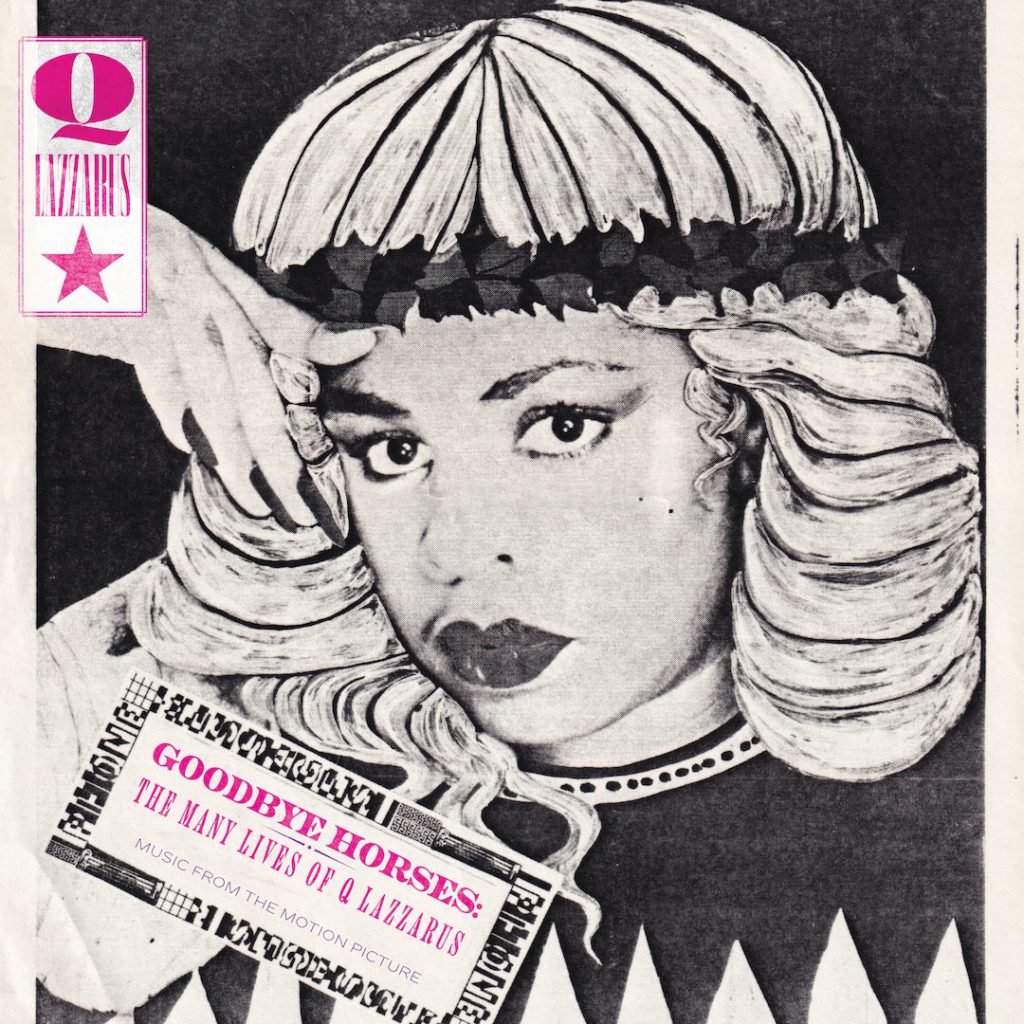
If you’ve ever requested “Goodbye Horses” at your local ‘80s or goth club, you need to seek out the new Q Lazzarus documentary. TBH, you need to see this movie even if you’re tired of hearing the song from Silence of the Lambs at every spooky night in town. You need to see it even if you think you don’t know what I’m talking about because- trust me- you will once year hear the first few seconds of the melody. Goodbye Horses: The Many Lives of Q Lazzarus, directed by Eva Aridjis Fuentes, is a must-see music documentary, in part because it’s much more than one song that became an unexpected club hit. This film is no nostalgia ride. In it, Diane Luckey, aka Q, shares her struggles and what ultimately led her to vanish from music in the mid-1990s.
Last month, I reviewed the Goodbye Horses soundtrack for Bandcamp. The 21-song collection is the first ever full-length Q Lazzarus release and, while listening to it, I was stunned by how she built up a large and eclectic body of work over a 10 year period, yet struggled to find anyone to release it. So, I went to a screening of Goodbye Horses at Philosophical Research Society in Los Feliz on Friday night to find out what happened. While I had read about bits-and-pieces of Luckey’s life and knew that she died while the documentary was in the works, I wasn’t expecting the revelations that come in the film.
The short(ish) version of the story, which is fairly easy to source online, is that Luckey was a young singer in New York who also worked as a driver. One night, she picked up Jonathan Demme, who would go on to use her music in several of his films, the most famous of which was Silence of the Lambs. “Goodbye Horses,” which appeared in both Married to the Mob and Silence of the Lambs, reached cult hit status in the decades to follow and Q Lazzarus became a sort of enigma in alternative culture circles. Dazed, the British publication, ran two stories searching for her in the late ‘10s. Meanwhile, Aridjis Fuentes, like Demme, randomly came into contact with Luckey, who had returned to driving for a living, when she needed a ride and the two struck up a friendship. The collaborative documentary is the result of that.
I don’t want to tell you why Luckey abandoned Q Lazzarus in the mid 1990s. That’s a story you have to hear directly from the source. One of the strengths of Goodbye Horses is that Luckey has a lot of space to tell her story in her own words. And she is a very good storyteller, the kind of seems to know instinctively when to add a little levity when recounting extremely difficult circumstances.
Things do turn around for Luckey well before she and Aridjis Fuentes meet. She may have left music, but she did seem to find a kind of peace after she’s able to settle down into a new life with her husband and child. During the course of the documentary, Luckey plans a comeback. There are setbacks, though, beginning with the COVID-19 pandemic. She died unexpectedly, from sepsis following a broken leg, in the summer of 2022 and the film reaches its conclusion with her husband and son’s raw reflections on the end of Luckey’s life.
While Goodbye Horses is the story of one gifted singer who should have been much better known that she was, it’s also a very American story, one that shows close to the edge people are here. It’s easy to assume that someone who has a visible sign of success– like a song that’s widely known– is living the good life, but that’s often not the case.
Luckey’s story also illustrates the dilemmas that come with creative work. She’s certainly not the only singer to reveal that she has made virtually nothing off a song whose popularity has soared in the decades since its release. (For another example, read this interview with Debbie Deb.) The industry, whether you’re talking about old school record labels or modern streaming services, is designed that way.
On an artistic level, Luckey’s struggles are rooted in the racism of a music industry that didn’t think a Black woman singing rock music was marketable. When it comes to her personal struggles, the systemic racism within various U.S. institutions absolutely play a role as well. If you cry or get angry while watching Goodbye Horses, that’s probably the point. In a just world, Luckey wouldn’t have gone through the ordeals that she did, nor would she have died when and how she did. Goodbye Horses is a heavy story and that’s why you should see it.
Head over to the Goodbye Horses website to keep up on screenings and streaming releases. Maybe bug your local indie theater to show it or something.
Liz O. is an L.A.-based writer and DJ. Read her recently published work and check out her upcoming gigs or listen to the latest Beatique Mix. Follow on Instagram or Bluesky for more updates.
Keep Reading:
“Energy: A Documentary About Damo Suzuki” Premiered in L.A. at Philosophical Research Society
